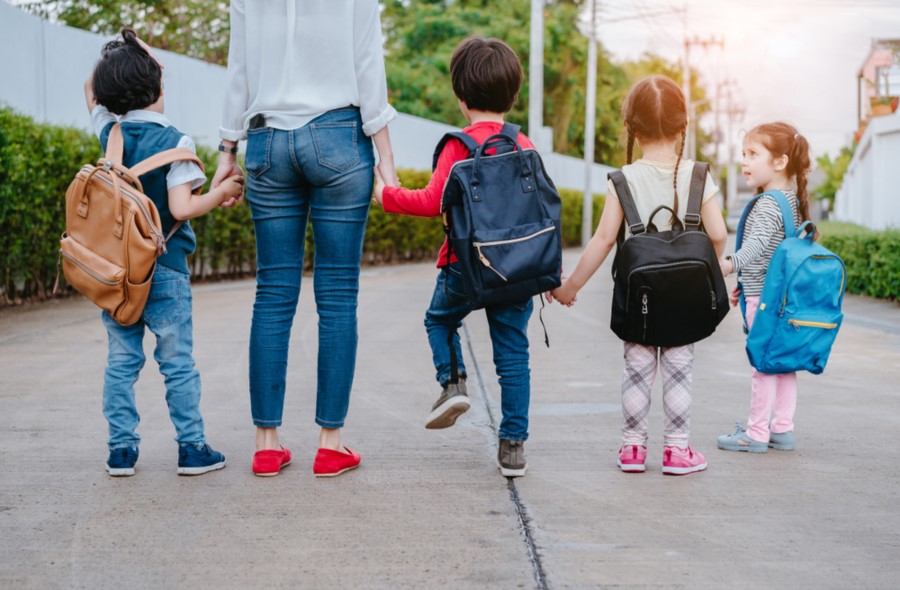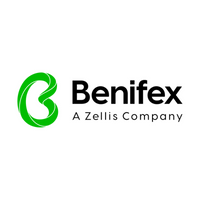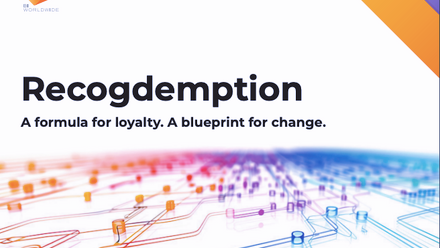Back to school: what four-year-olds can teach us about social recognition

The Secret Life of 4-Year-Olds first aired in 2015 and was an unprecedented hit. Since then, it’s been teaching us more about the principles of basic human behaviours, and it can help answer many of our challenges in the workplace.
Back to school
‘Due recognition is not just a courtesy we owe people. It is a vital human need,’ Charles Taylor, The Politics of Recognition, 1992.
Despite being nearly 30 years old, this insight from Taylor is still supported by many psychology scholars, and it manifests itself beautifully in Channel 4’s documentary series. In this programme, a class full of toddlers meet at pre-school for the first time, and through a series of cameras and sensors, the audience sees the children’s behaviours unfold and develop. The programme’s creators have since said that the show’s success is due in large part to adult viewers recognising so much of themselves in the children.
A key insight from the show is how children respond to receiving praise, and how easy it is to see these effects continue into adulthood.
The effect of recognition on resilience
One of the programme’s contributors, Professor Paul Howard-Jones, said in a Channel 4 interview that parents will be interested in how children react to different types of praise. “Research shows how giving praise in different ways can influence children’s belief in their ability as something which is innate or something they can actually develop themselves.”
For example, those who receive specific praise about working hard at something are likely to be more resilient after a failure, and will then go on to figure out how to overcome the challenge. In contrast, those who are mostly praised in general terms, like “you’re brilliant”, are more likely to think of their capabilities as intrinsic and unmoving, and therefore there’s nothing to be done when they fail. It’s not a huge leap to see how, years later, this is reflected in the workplace.
Author Simon Sinek quite controversially suggested that, Millennials who were used to getting a lot of unspecific praise about their excellence during childhood and adolescence have found it difficult to transition into the workplace without this constant reassurance. Although many didn’t appreciate the singling out of this demographic, it makes sense, across the board, that specific praise (and specific feedback) which acknowledges effort is much more helpful and valuable to our development as children, and later on, to our progression at work.
Positive peer-to-peer recognition
One interesting example of the impact of peer recognition has been singled out by Dr. Sam Wass – another contributor to Channel 4’s programme. He pointed out that an introverted and naturally fearful child – Nathan – came on leaps and bounds over the course of just a week. With the encouragement of his new friend Ralphy, Nathan progressed from being terrified of spiders, to letting a tarantula crawl over him.
“Adults naturally want to protect kids and praise them for taking small steps.” But what Ralphy did was to encourage Nathan to “be brave” and push himself, knowing that Ralphy was there for support. What was key here was that Nathan wasn’t being patronised; he had a positive role model, who was close to his developmental stage. As adults, this kind of dynamic is still very much alive at work. We’re not necessarily told to “be brave”, but we are often asked to “step outside our comfort zone” or “dive in head-first”, and we can see how we’d respond positively – perhaps competitively – to being challenged and encouraged as an equal, as we look to tackle our own tarantula-sized conundrums in the workplace.
Transposing childhood behaviours into work
While The Secret Life of 4-Year-Olds offers just a snapshot into the basics of human interaction, it would be remiss for us to underestimate the reasons why this became such a popular show. It offers an insight – at an almost primitive level – of how we develop our interpersonal and self-motivational skills; recognition being a key catalyst to this. As Howard-Jones goes on to explain, “there’s not much about adult personality that isn’t already in the mix at four years old”.
Seeing these four-year-olds interact with raw authenticity shows employers that we perhaps need to take a step back from complex recognition strategies, and deliver our thanks (or feedback) quickly, honestly, and specifically.
The author is James Cotsen, client director, Benefex.
This article was provided by Benefex.
Supplied by REBA Associate Member, Benifex
The home of award-winning employee benefits, reward, recognition, & communications.







